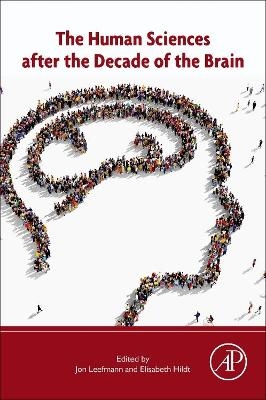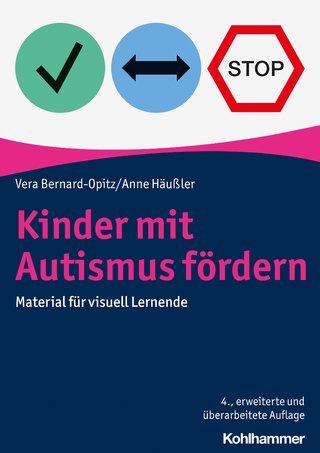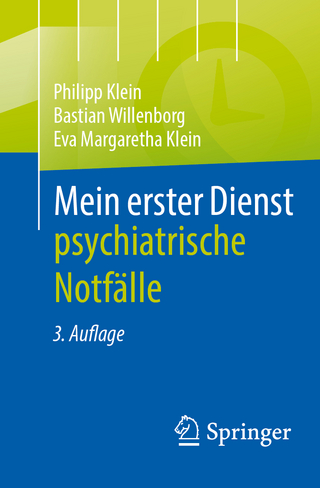
The Human Sciences after the Decade of the Brain
Academic Press Inc (Verlag)
978-0-12-804205-2 (ISBN)
This book is an important resource both for students and scholars of cognitive neuroscience and biological psychology interested in the philosophical, ethical, and societal influences of—and on—their work as well as for students and scholars from the social sciences and humanities interested in neuroscience.
Jon Leefmann is a postdoctoral research fellow at the Center for Applied Ethics and Science Communication (ZIEW) at Friedrich-Alexander-University Erlangen-Nuremberg in Germany. His research and teaching focusses primarily on philosophical, ethical and social implications of neuroscience research and on issues in social epistemology such as epistemic trust and knowledge from testimony. He is the author of one book (in German) and several articles on the ethics of cognitive enhancement. Before taking up the position in Erlangen he was a research fellow with the Research Group on Neuroethics and Neurophilosophy at the University of Mainz, Germany, where he worked on the impact of neuro-cognitive-sciences on contemporary research on the humanities and on contemporary culture. He has wide ranging philosophical and non-philosophical interests, but feels most at home in Ethics, Applied Ethics, and Epistemology. Elisabeth Hildt is professor of philosophy and director of the Center for the Study of Ethics in the Professions at Illinois Institute of Technology, where her research focuses on philosophical and ethical issues in neuroscience, most significantly the field of cognitive enhancement. Her previous appointments include scientific coordinator of the interdisciplinary project European Network for Biomedical Ethics and assistant professor at the Chair for Ethics in the Life Sciences at the University of Tübingen. Prior to moving to the Illinois Institute of Technology in 2014, she spent six years as the head of the Research Group on Neuroethics/Neurophilosophy at the University of Mainz. She serves on the editorial board of PLOS ONE and the American Journal of Bioethics Neuroscience (AJOB Neuroscience). She has authored and edited twelve other books on neuroethics and biomedical ethics, and is the author of 70 articles on the subject.
Part I: Prospects and Limitations of Neuroscience Research in the Humanities and Social Sciences 1. Neurophilosophy or Philosophy of Neuroscience? What Neuroscience and Philosophy Can and Cannot Do for Each Other 2. Philosophical Puzzles Evade Empirical Evidence: Some Thoughts and Clarifications Regarding the Relation Between Brain Sciences and Philosophy of Mind 3. “Who’s Afraid of the Big Bad Neuroscience? Neuroscience’s Impact on Our Notions of Self and Free Will 4. Free Will—Between Philosophy and Neuroscience 5. Histories of the Brain: Toward a Critical Interaction of the Humanities and Neurosciences
Part II: The Neurosciences of Social Sciences and Ethics 6. The Theory of Brain-Sign: A New Model of Brain Operation 7. On the Redundancies of “Social Agency 8. Two Kinds of Reverse Inference in Cognitive Neuroscience 9. The Neuroscience of Ethics Beyond the Is-Ought Orthodoxy: The Example of the Dual Process Theory of Moral Judgment
Part III: The Neurosciences in Society. Social, Cultural, and Ethical Implications of the Neuro-Turn 10. Effects of the Neuro-Turn: The Neural Network as a Paradigm for Human Self-Understanding 11. Brain, Art, Salvation. On the Traditional Character of the Neuro-Hype 12. “A Mind Plague on Both Your Houses: Imagining the Impact of the Neuro-Turn on the Neurosciences 13. Being a Good External Frontal Lobe: Parenting Teenage Brains 14. Toward Neuroscience Literacy?—Theoretical and Practical Considerations 15. “Strangers in Neuroscientific Research 16. At the Push of a Button, Narrative Strategies and the Image of Deep Brain Stimulation
| Erscheinungsdatum | 24.02.2017 |
|---|---|
| Verlagsort | San Diego |
| Sprache | englisch |
| Maße | 152 x 229 mm |
| Gewicht | 520 g |
| Themenwelt | Medizin / Pharmazie ► Medizinische Fachgebiete ► Neurologie |
| Naturwissenschaften ► Biologie ► Humanbiologie | |
| Naturwissenschaften ► Biologie ► Zoologie | |
| ISBN-10 | 0-12-804205-2 / 0128042052 |
| ISBN-13 | 978-0-12-804205-2 / 9780128042052 |
| Zustand | Neuware |
| Haben Sie eine Frage zum Produkt? |
aus dem Bereich


